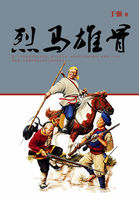But we very soon perceive that the chain or series of prosyllogisms, that is, of deduced cognitions on the side of the grounds or conditions of a given cognition, in other words, the ascending series of syllogisms must have a very different relation to the faculty of reason from that of the descending series, that is, the progressive procedure of reason on the side of the conditioned by means of episyllogisms.For, as in the former case the cognition (conclusio) is given only as conditioned, reason can attain to this cognition only under the presupposition that all the members of the series on the side of the conditions are given (totality in the series of premisses), because only under this supposition is the judgement we may be considering possible a priori; while on the side of the conditioned or the inferences, only an incomplete and becoming, and not a presupposed or given series, consequently only a potential progression, is cogitated.Hence, when a cognition is contemplated as conditioned, reason is compelled to consider the series of conditions in an ascending line as completed and given in their totality.But if the very same condition is considered at the same time as the condition of other cognitions, which together constitute a series of inferences or consequences in a descending line, reason may preserve a perfect indifference, as to how far this progression may extend a parte posteriori, and whether the totality of this series is possible, because it stands in no need of such a series for the purpose of arriving at the conclusion before it, inasmuch as this conclusion is sufficiently guaranteed and determined on grounds a parte priori.It may be the case, that upon the side of the conditions the series of premisses has a first or highest condition, or it may not possess this, and so be a parte priori unlimited; but it must, nevertheless, contain totality of conditions, even admitting that we never could succeed in completely apprehending it; and the whole series must be unconditionally true, if the conditioned, which is considered as an inference resulting from it, is to be held as true.
This is a requirement of reason, which announces its cognition as determined a priori and as necessary, either in itself- and in this case it needs no grounds to rest upon- or, if it is deduced, as a member of a series of grounds, which is itself unconditionally true.
SECTION III.System of Transcendental Ideas.
We are not at present engaged with a logical dialectic, which makes complete abstraction of the content of cognition and aims only at unveiling the illusory appearance in the form of syllogisms.Our subject is transcendental dialectic, which must contain, completely a priori, the origin of certain cognitions drawn from pure reason, and the origin of certain deduced conceptions, the object of which cannot be given empirically and which therefore lie beyond the sphere of the faculty of understanding.We have observed, from the natural relation which the transcendental use of our cognition, in syllogisms as well as in judgements, must have to the logical, that there are three kinds of dialectical arguments, corresponding to the three modes of conclusion, by which reason attains to cognitions on principles; and that in all it is the business of reason to ascend from the conditioned synthesis, beyond which the understanding never proceeds, to the unconditioned which the understanding never can reach.
Now the most general relations which can exist in our representations are: 1st, the relation to the subject; 2nd, the relation to objects, either as phenomena, or as objects of thought in general.If we connect this subdivision with the main division, all the relations of our representations, of which we can form either a conception or an idea, are threefold: 1.The relation to the subject; 2.The relation to the manifold of the object as a phenomenon; 3.The relation to all things in general.
Now all pure conceptions have to do in general with the synthetical unity of representations; conceptions of pure reason (transcendental ideas), on the other hand, with the unconditional synthetical unity of all conditions.It follows that all transcendental ideas arrange themselves in three classes, the first of which contains the absolute (unconditioned) unity of the thinking subject, the second the absolute unity of the series of the conditions of a phenomenon, the third the absolute unity of the condition of all objects of thought in general.
The thinking subject is the object-matter of Psychology; the sum total of all phenomena (the world) is the object-matter of Cosmology; and the thing which contains the highest condition of the possibility of all that is cogitable (the being of all beings) is the object-matter of all Theology.Thus pure reason presents us with the idea of a transcendental doctrine of the soul (psychologia rationalis), of a transcendental science of the world (cosmologia rationalis), and finally of a transcendental doctrine of God (theologia transcendentalis).Understanding cannot originate even the outline of any of these sciences, even when connected with the highest logical use of reason, that is, all cogitable syllogisms-for the purpose of proceeding from one object (phenomenon) to all others, even to the utmost limits of the empirical synthesis.They are, on the contrary, pure and genuine products, or problems, of pure reason.















